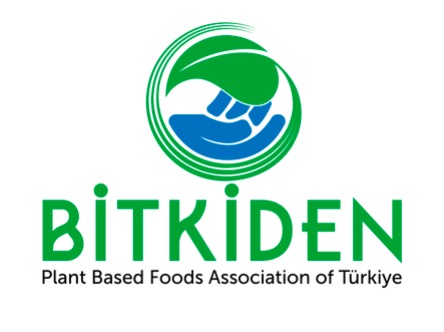Oksijen sent products purchased from five markets in Istanbul for pesticide (chemical substances used in agriculture) analysis. According to laboratory reports, pesticides were detected in 8 of the 15 products, but all were below the limit values set by the ministry. Commenting on the reports, Prof. Dr. Beraat Özçelik said, “Knowing that the plants were treated with pesticides, we couldn’t expect zero pesticides. If it’s below the limit, it means it was used in a controlled manner,” while Ebru Akdağ from the Chamber of Food Engineers also found the results “better than expected.”
Turkey was the country with the most notifications in 2024 through the Rapid Alert System for Food and Feed (RASFF), the European Union’s (EU) food safety control system. Many food products sent from Turkey were returned to Turkey on the grounds that they were ‘risky’ or ‘highly risky’ in terms of pesticides (poisonous chemicals used to protect against insects, weeds, fungi, and other organisms that could be harmful to industrially grown crops). It was alleged that these products, whose export was blocked, were sold in Turkey instead of being destroyed, and that many products sold on market stalls also contained pesticides.
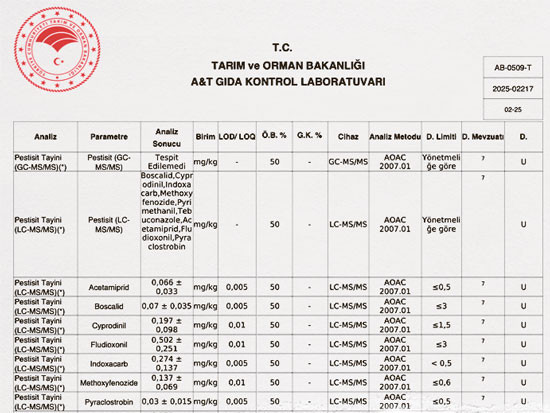
Oksijen visited four different neighborhood markets in Istanbul and an ecological market to determine whether the food we consume carries a pesticide risk. He purchased tomatoes, peppers, and oranges—fruits and vegetables most frequently rejected at the EU border—and sent them to a Ministry of Agriculture and Forestry-approved laboratory for pesticide analysis.
The analysis results of 15 samples taken from Kadıköy Historical Tuesday Market, Bakırköy Saturday Market, Beşiktaş Saturday Market, Pendik Public Market, and Feriköy Organic Market were as follows:
- No pesticides were detected in 7 of the 15 samples. Three of these were products from the ecological market that already had organic farming certification.
- Pesticides were detected in 8 of the samples. In fact, the number of active ingredients detected in one product was 1, while in another it was as high as 9.
It should be emphasized here that the limit values set by the ministry for the active substances detected were not exceeded. However, the active substance indoxacarb (a type of insecticide used against insects and pests) detected in tomatoes from Pendik was below Turkish limits but above EU limits (0.274 mg/kg). The limit value for this substance in Turkey is 0.5 mg/kg, while the EU limit is 0.01 mg/kg. This means that if the tomatoes sold in the Pendik market were sent to the EU, they would not be accepted at the border.
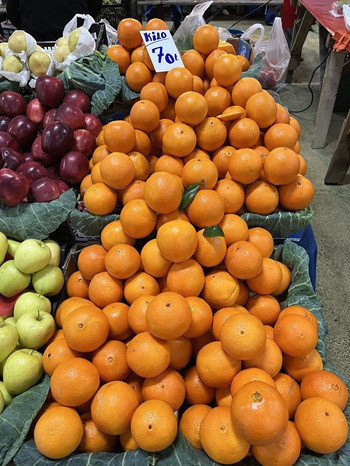
On the other hand, acetamiprid, another substance with different limit values between the EU and Turkey, was also detected in tomatoes taken from Pendik and Bakırköy. While the limit value for acetamiprid in Turkey is 0.5, the EU has lowered it to 0.06, effective from August 2025. Since the product at the Bakırköy market contained 0.07±0.035 mg/kg and the one in Pendik contained 0.066±0.033 mg/kg of acetamiprid, this product will also be unable to pass through EU borders starting in August.
So how should these results be interpreted? Prof. Dr. Recep Kotan, a faculty member at the Department of Plant Protection, Faculty of Agriculture, Erzurum University, summarizes the results as “no abnormal situation.” Ebru Akdağ, a member of the Istanbul Branch Management Board of the Chamber of Food Engineers, says that the results are better than expected and that the important thing is “the use of pesticide active ingredients at doses that do not show toxic effects.” “Decisions are made based on experiments conducted at these doses, and doses that will not affect human health over a lifetime are determined. In other words, if the product remains below the limit value, it means that even if exposed to the product for a lifetime, there will be no problem.”
Prof. Dr. Beraat Özçelik, a faculty member at the Istanbul Technical University Department of Food Engineering, also states that “pesticides cannot be completely eliminated from food,” adding, “We are not currently in a position to feed the world with zero pesticides. The important thing is to use the right pesticide in the right amounts. If it is below the limit, it means it has been produced under control.”
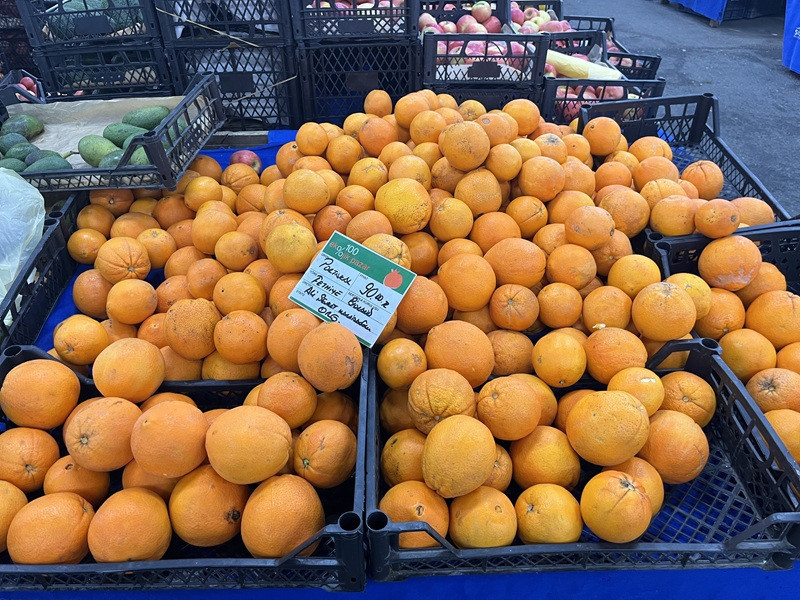
However, Batur Şehirlioğlu, General Manager of the Wheat Ecological Life Support Association, believes that the concept of a “safe dose” is fundamentally flawed. “More than 200 pesticide active ingredients were considered safe and permitted for use in our country and the European Union as long as they remained below the limit, only to be banned years later. A chemical is first released onto the market. Research then determines it is harmful approximately 20 years later. This situation is indicative of the increasing number of studies revealing the harms of pesticides.”
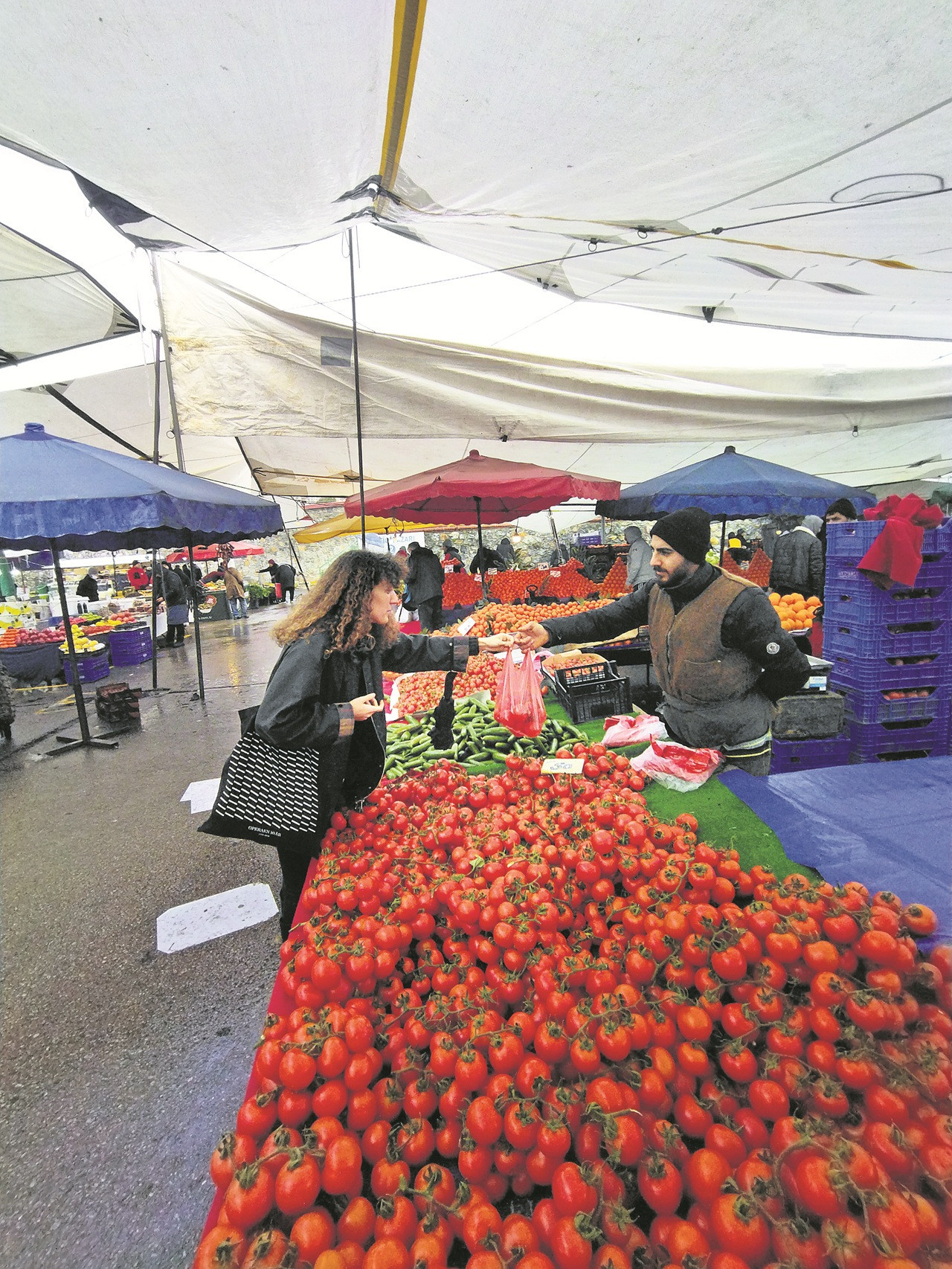
The cocktail effect is not being considered
Şehirlioğlu also draws attention to the ‘cocktail effect’ that multiple pesticide active ingredients can create. “Finding nine different active ingredients in one product is very bad. The harm caused by pesticides is not limited to the individual effects of the active ingredient. Research shows that the cocktail effect created by multiple types of pesticides combined can be much more harmful than the effects of the active ingredients individually. However, current regulations examine pesticides individually and do not take the cocktail effect into account.”
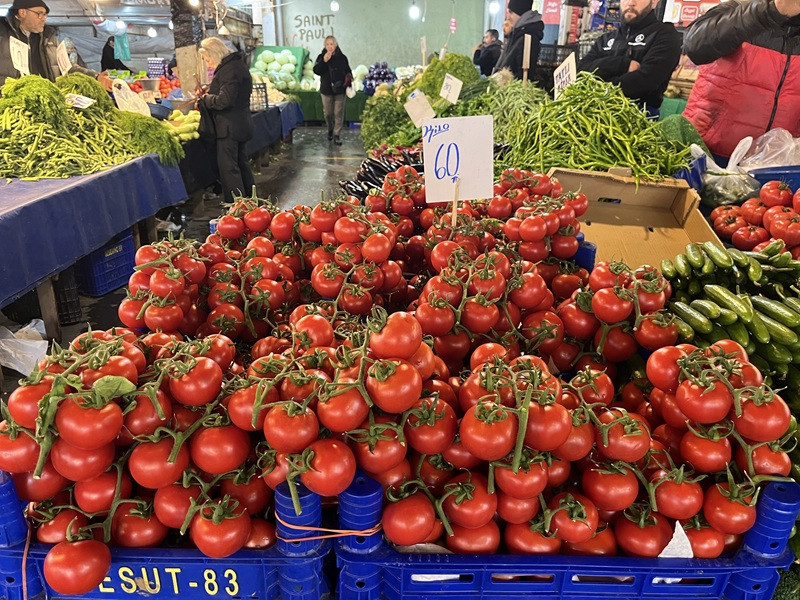
Prof. Dr. Recep Kotan states that tomatoes are sprayed an average of 45 times during one vegetation period, with a total of 15-20 different active ingredients used, adding that the detection of nine different pesticide active ingredients in one sample is an expected result.
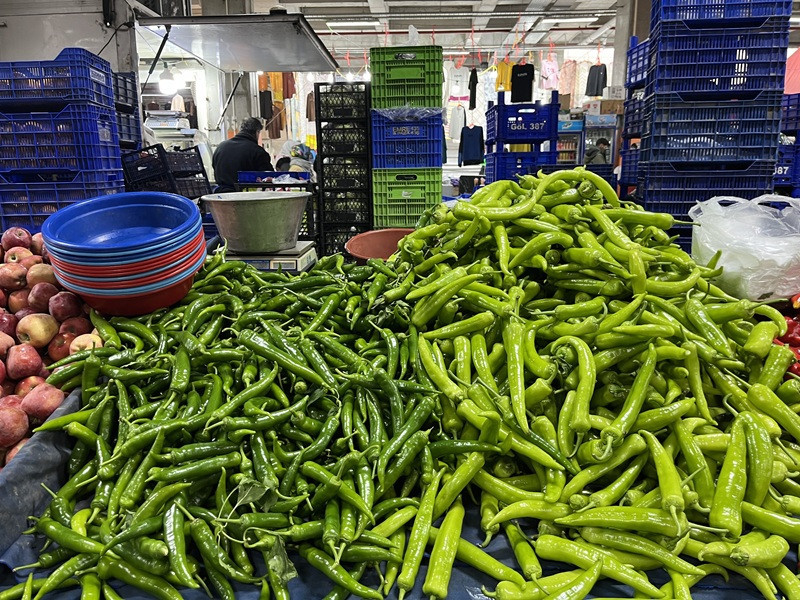
The risks are numerous: Alzheimer’s, cancer, depression…
According to a report prepared by the Health and Environment Alliance (HEAL) and the Association of Public Health Specialists, long-term exposure to pesticides causes cancer, Parkinson’s disease, Alzheimer’s disease, attention deficit hyperactivity disorder (ADHD), anxiety, depression, endocrine system disorders, and reproductive system disorders.
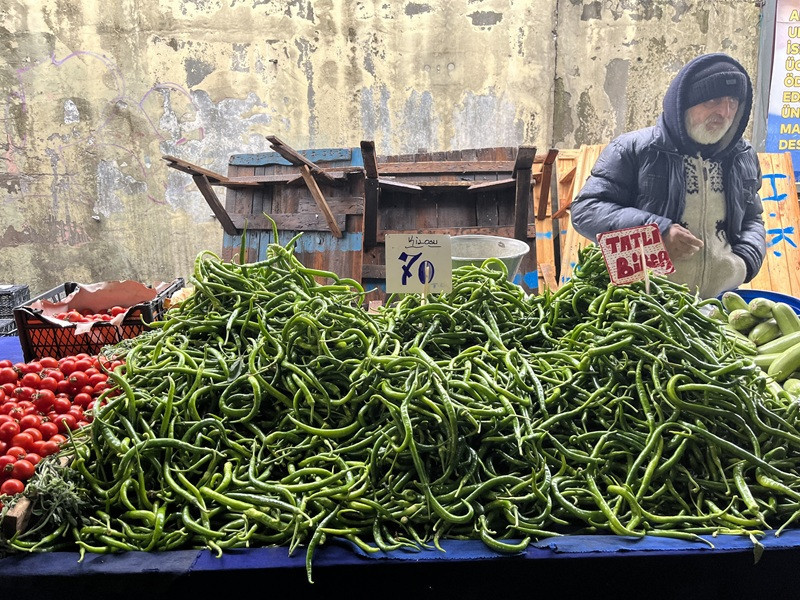
Half of them are from Turkey
In 2024, 253 of the 513 fruit and vegetable products exported to the European Union (EU) that received notifications due to pesticide use were from Turkey. In 2023, 163 notifications were made. Last year, dried figs received the most notifications with 136, followed by peppers, citrus fruits, pomegranates, and tomatoes. The active substances with the most notifications were aflatoxin, ochratoxin, and chlorpyrifos, which is banned in both Turkey and the EU.
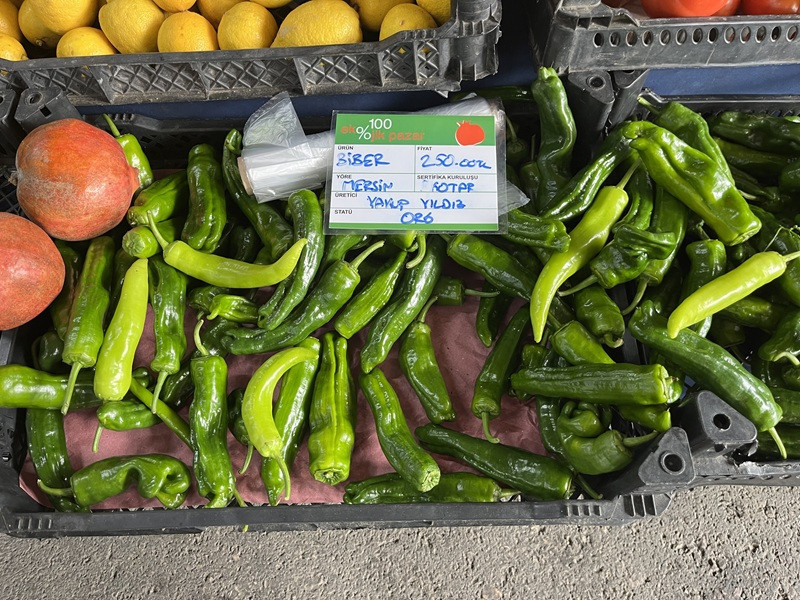
The Ministry of Agriculture and Forestry has not yet responded to our questions regarding pesticide inspections and products returning from the EU.
However, according to statements made by the minister late last year, “Products returning from the European Union (EU) are not allowed to pass directly through internal customs. Non-compliant products are destroyed without being allowed to enter the country.” Last year, nearly 250,000 pesticide inspections were carried out in production areas before harvest, in food processing plants after harvest, and throughout the entire food chain prior to export. However, the results of these inspections are not shared with the public by the ministry. Şehirlioğlu, General Manager of the Wheat Association, points out that the cost of pesticide analysis, which is 1,000 lira including VAT, has risen to 3,600 lira excluding VAT, and that high analysis fees are a situation that increases food safety risks.
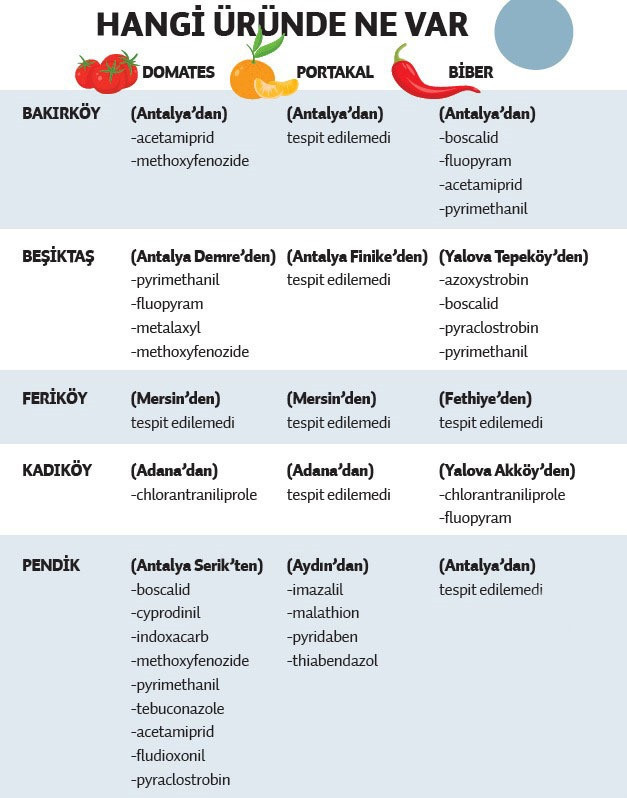
The table on the right shows which market the products were purchased from, where they were produced, and the content of the pesticide active ingredients detected. The tests were conducted in a laboratory approved by the Ministry of Agriculture and Forestry.
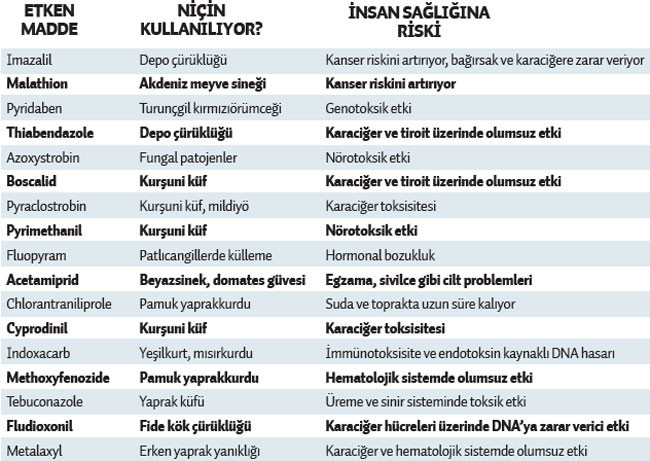
“We are one year behind the EU”
The table above shows the active ingredients of pesticides detected in products, their intended use, and data on the risks they pose to human health. Scientific studies on the harms of pesticides and the substances used are ongoing. As a result of these studies, substances found to pose a threat to health are either subject to a change in their limit value or are banned. The EU’s ban decision is generally implemented in Turkey approximately one year later to allow for the depletion of existing stocks.
